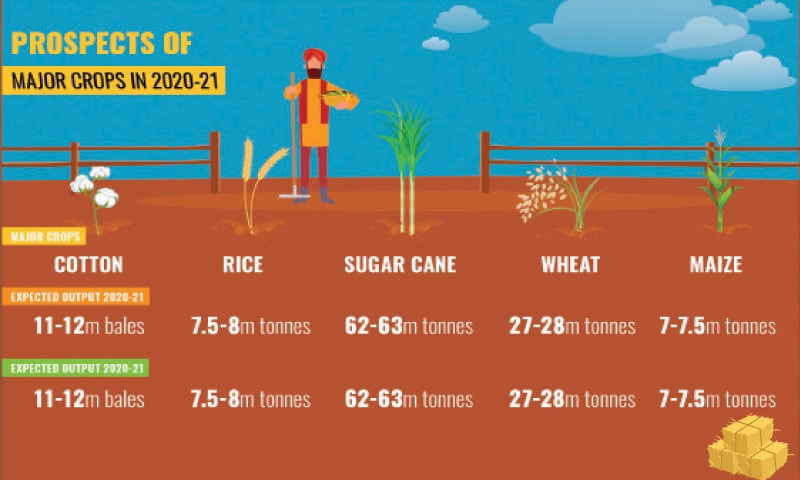PAKISTAN’S agriculture sector has to start its much-delayed journey of progress in 2020. A further delay can be too damaging for the overall economy with too expensive spillover effects on the country’s political system.
The government claims that it is aware of the enormity of the challenges facing agriculture and is making efforts to overcome them.
However, political parties in the opposition do not buy this claim, and lament that the PTI government has no respect for political inclusiveness — the principal ingredient of forward-looking policymaking — and cannot even grasp socio-political complexities of agriculture problems, let alone respond to them.
Claims, counter-claims, allegations and counter-allegations of our political class has so far dominated most of the discussions on agriculture and have rendered several agricultural policies ineffective in the past.
The government realised the cost of political isolation in 2018 and 2019. It is apparently determined to enter 2020 with the spirit of political inclusiveness
The year 2020 has to be different, however. Failure in fixing immediate issues of agriculture, such as high input prices or addressing structural issues like low productivity, the absence of innovation, politicisation of decision-making and lack of inter-provincial harmony, would damage the sector beyond repair.
Our parliamentary democracy is fragile. The PTI government knows that if it fails to lift agriculture and satisfy all the stakeholders during its tenure, its very survival will be at stake.
And it also knows that if it leaves any vacuum in developing a shared vision for sustainable agricultural progress, the vacuum could be filled by inputs from foreign powers and non-democratic forces.
The government has realised this after making costly experiments of political isolation in 2018 and 2019. It is apparently determined to enter 2020 with the spirit of political inclusiveness. Deliberations at, and the outcomes of, a recent meeting of the Council of Common Interests serve as pointers towards this possibility.
The PML-N government launched the much-needed food security policy towards the end of its tenure. The current government has so far not started implementing that policy for attaining sustainable agricultural growth and ensuring food security of a rapidly growing population.
Stakeholders like the Federation of Pakistan Chambers of Commerce and Industry keep demanding that the policy be implemented.
The PTI government has rolled out an agricultural revival package, but with less input from Sindh, the country’s second-largest food-producing province. This practice of practically disowning certain policies of the past only because those were given by rival political parties ought to be discontinued.
Published in Dawn, The Business and Finance Weekly, January 6th, 2020













































Dear visitor, the comments section is undergoing an overhaul and will return soon.